|
 Secure Site
Secure Site
|
 |
Archive for the 'sleep' Category
 can yoga help you fall asleep? If you’re one of the millions of sleep-starved Americans with a dwindling supply of fence-jumping sheep, try introducing a few Downward Dogs to your bedtime menagerie. A recent clinical study at Boston’s Brigham and Women’s Hospital confirmed that bedtime yoga can help chronic insomniacs significantly reduce their tossing-and-turning time.
The results are most likely linked to yoga’s soothing effect on the central nervous system, says lead study author Sat Bir Khalsa, Ph.D., assistant professor at Harvard Medical School. In insomniacs, levels of the stress hormone cortisol are elevated,” he explains. Yoga can reduce cortisol levels, which is why you have that feeling of calm after practicing it.” And while the study’s poses were selected for their sleep-promoting effects (see below for instructions), Khalsa says most types of yoga, practiced regularly at any time of day, should bring on more nighttime ZZZs. Sleep-promoting yogic breathing exercises
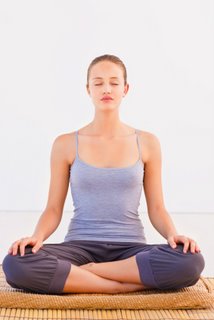 yoga exercises for insomnia Exercise 1
Sit with a straight spine, with your head erect and chin lightly tucked in. Extend both arms up to form a 60-degree angle (almost vertical), with wrists straight and palms and fingers extended flat and facing up. Keep elbows straight. Begin slow deep breathing through the nose. As you inhale, let your abdomen extend out as though it were being filled with air. As the inhale continues, let your chest expand. At the end of the inhale, pause briefly with your breath suspended; do not to lock your throat to hold the breath, but rather suspend the breath by lifting and suspending the motion of the chest. As you start to exhale, let the chest contract first. As the exhale continues, pull in your abdomen slightly as though it were being emptied of air. Pause briefly at the end of the exhale before beginning the next inhale. The breath rate should be four breaths per minute or slower (15 seconds or longer for each complete inhale/exhale). It is important that this breath, as with all of the breathing in these exercises, is done through the nose. Keep your eyes closed during this exercise, and focus your mental attention on the flow of the breath. Continue for 2 to 3 minutes using your zen timer in repeat mode. At the end, inhale deeply and hold for 10 seconds. Exhale, and let your breath relax as you keep your mental focus on the flow of the breath for about 1 minute with eyes closed.
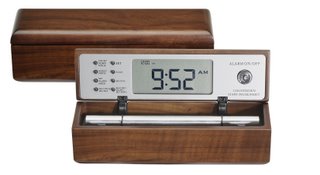 Yoga Timer & Chime Alarm Clock by Now & Zen, Inc. - Boulder, CO Exercise 2
Sit with a straight spine, with your head erect and chin lightly tucked in. Extend the arms out to the sides parallel to the ground. Bend the wrists with the fingers pointing straight up. (Your hands look like you’re pressing out toward two walls.) Begin slow deep breathing as described in Exercise 1. Continue for 2 to 3 minutes. At the end, inhale deeply and hold for 10 seconds. Exhale, and let your breath relax as you keep your mental focus on the flow of the breath for about 1 minute with eyes closed.
The Digital Zen Clock serves as a countdown and interval timer for yoga, meditation, bodywork, etc.; and it can also be set to chime on the hour as a tool for “mindfulness.”
 yoga for better sleep Exercise 3
Sit with a straight spine, with the head erect and the chin lightly tucked in. Press the palms together in front of the chest. The fingers of the right hand fingers go over the side of the left index finger and onto the back of the left hand. It is a “cross-lock” with the fingers crossing each other at 90 degrees. Squeeze the hands toward each other with continuous pressure. Begin slow deep breathing as described in Exercise 1. Continue for 2-3 minutes. At the end, inhale deeply and hold with a final push together of the hands for 10 seconds. Exhale, and let your breath relax as you keep your mental focus on the flow of the breath for about 1 minute with eyes closed.
Exercise 4
Sit with a straight spine, with your head erect and chin lightly tucked in. Place your hands in your lap, palms facing up, right hand over the left. The thumb tips touch and point forward. Keep the eyelids half closed. Look downward past the tip of your nose. Inhale in four equal segments through the nose. Mentally recite the sound scale, “Sah Tah Nah Mah”, with one syllable for each stroke of the breath. Then hold the breath by lifting and suspending the motion of the chest. As you hold the breath, mentally repeat the scale four times, for a total of 16 beats. Then exhale in two equal and powerful strokes out the nose. Mentally recite “Wah-Hay” on the first segment out, and “Goo-Roo” on the second stroke out. Continue for 5 to 31 minutes. At the end, inhale deeply and hold for 10 seconds. Exhale, and let your breath relax as you keep your mental focus on the flow of the breath for a few minutes. If you wake up in the night and have trouble falling back asleep, do this exercise for 5 to 11 minutes.
adapted from Body + Soul, April/May 2007
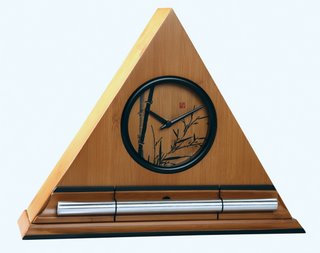 Bamboo Zen Clocks, progressive chime clock and timer for yoga Now & Zen’s Yoga Time & Chime Alarm Clock Shop
1638 Pearl Street
Boulder, CO 80302
(800) 779-6383
Posted in Insomnia, intention, Meditation Timers, mindfulness practice, sleep, Sleep Habits, Well-being, yoga, Yoga Timer, Yoga Timers by Now & Zen
 The Dream-Health Connection Physicians in early Egypt and ancient Greece encouraged people to recall their dreams when seeking medical advice. Mexican and Native American shamans have long considered dream interpretation important for both healing and spiritual awareness. Tibetan medicine views dream work as a path to self-discovery, an awareness that can help create an inner balance — and inner balance contributes to good health.
The Dream-Health Connection
Indeed, the study of dreams in relation to health is gaining acceptance in the scientific community. One study reveals that the role of REM sleep and noting dream variables may be significant in helping patients gain quicker remission from marital separation-related depression (Psychiatry Research, 1998, vol. 80). Other research finds that dream content reflects waking life stressors in people with insomnia. Several studies tracked cancer patients’ dream series and reported that their dreams may have pointed to early cues for the presence of the disease process.
Katherine O’Connell, Ph.D., a clinical psychologist, dream analyst and founder of the Dream Institute in Santa Cruz, Calif., says that “listening to dreams can save your life.” She notes that dreams not only reveal symbols for health issues that need to be resolved, but they often reveal the herbal remedy for the problem — a method of medical dream work that dates back to ancient Egypt and Greece. For example, O’Connell finds that her clients often dream of flowers or herbs that are traditionally used to treat the ailments their physicians diagnose.
In her dream-work journey, O’Connell has studied dream medicine with Tibetan lamas and researched 3,500-year-old Egyptian homeopathic remedies used for dream recall. Through the process, she has also collected more than 5,000 dreams — her own and those of clients — for analysis.
O’Connell believes that viewing your dreams as a series is the best way to understand the complete picture of your physical and psychological health. She suggests writing your dreams down, then reviewing common threads that run through them. “I see dream work as a good mystery story with many chapters,” she says. “With each chapter, we gain more clues along the way.”
Cultivating Dream Awareness
To access the clues in your dreams, start with your knowledge of yourself. While dream symbol books can serve as loose guides, dream interpretation is really an individual matter. For example, the color green may represent money to your spouse but symbolize healing energy to you. Likewise, a spider can be your personal symbol of creativity whereas it may signal a venomous threat to someone else; similar dream images often have different interpretations for different people. So it’s important to tap into your own associations, feelings and intuition about your dream symbols. “We have such innate wisdom. We must remember to trust ourselves,” O’Connell says.
Want to be more in touch with your dreams? ASD offers the following tips:
- Remind yourself to remember your dreams before you fall asleep.
- Keep a pad of paper and pen or tape recorder by your bedside. As you awaken to your chiming Zen Alarm Clock , try to move as little as possible and try not to think right away about your upcoming day. Instead, immediately write down your dreams and dream images, as they can fade quickly if not recorded.
- Influence your dreams by giving yourself pre-sleep suggestions. Before going to bed, write down your agenda. Or say aloud what you want to know to strengthen the conscious-subconscious dream connection.
- Forgo taking alcohol or stimulants such as coffee or caffeinated tea before bed, as these substances interfere with REM sleep. Also, try taking a warm bath with a few drops of chamomile or cedar essential oil (first diluted in a carrier oil such as almond or walnut), or try practicing a few minutes of meditation to clear your mind for restful sleep and clearer dreams. Dreams not only have the potential to enhance your health but, as Jungian analyst Marie-Louise von Franz says, “Dreams show us how to find meaning in our lives, how to fulfill our own destiny and how to realize the greater potential of life within us.”
Sweet dreams.
adapted from Delicious Living, October 2000 by Deborahann Smith
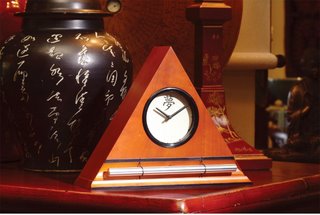 Zen Alarm Clocks with a progressive chime that doesn't interrupt your dreams Now & Zen – The Zen Alarm Clock Shop
1638 Pearl Street
Boulder, CO 80302
(800) 779-6383
Posted in Dreams, Japanese Inspired Zen Clocks, Natural Awakening, sleep, Sleep Habits, Zen Alarm Clock
 Insomnia Suggestions You’ve tried it all—chamomile tea, hot baths, aromatherapy, melatonin—and nothing works. Your insomnia obviously calls for something a little stronger than a glass of warm milk. In fact, you need something that packs a bit more punch, but you don’t want to resort to sleep medications. Good news: Sleep researcher Roger Cole, PhD, from Del Mar, California, recommends two powerful, natural sleep therapies that have helped many insomniacs drift off peacefully to dreamland.
Resetting your body clock
If you have difficulty falling asleep at night and waking up in the morning, try dawn/dusk simulation, a form of sleep therapy that resets your body clock. Your body uses natural signals, including sunlight and darkness, to trigger hormones that make you active in the morning and sleepy at night. Bright light, particularly morning sunlight, provides the strongest signal the body uses to regulate this hormonal cycle, called your circadian rhythm. So if you typically awaken before sunrise or work in artificially lit environments, your circadian rhythm may have gotten out of sync. Using a light box may help you reset it.
Here’s how to do it: Spend the first half hour of each morning in simulated “dawn,” by sitting in front of a light box. You can do this while you eat your breakfast, read the paper, or go about your morning routine. Before bed, spend time in simulated “dusk” by closing the curtains and keeping lights dim. This combination should reset your clock within a few days.
If sleep problems continue, wake up and use your light box a half hour earlier for a few days. Cole says eventually you’ll hit a “magic sleep spot.” Once you do, you should be able to discontinue the therapy. But people who are true night owls may need to keep using both dawn and dusk simulation indefinitely to stay on their new schedules.
Cole recommends a light box that delivers 10,000 lux at a distance of at least 20 inches. A large field of view (at least 18” wide) is a plus, and a box that gives white light with an extra boost of blue or blue-green may be more effective than a plain white box.
 sleepless nights call for solutions Sleep restriction
If you have trouble falling and staying asleep, and spend time tossing and turning, sleep restriction therapy may be the ticket. This therapy is based on the theory that although your body may have learned to get along without sleep, it’s actually possible for you to retrain it.
Start by estimating how much sleep you typically get each night, as opposed to how many hours you stay awake in bed hoping for sleep (say five hours of sleep for seven in bed). Stay in bed only for the amount of time you usually sleep (the five hours), scheduling your bedtime and wake-up time appropriately (say, 1 a.m. to 6 a.m.). Meanwhile, use your bedroom for sleeping only (and for, well, you know). And no fair taking mid-day naps.
If you do wake up during the night, lie awake in bed no more than 15 minutes. Then leave the bedroom, stay warm, and engage in a peaceful activity in a dimly lit room, returning to bed when you feel ready to sleep. And now—here’s the hard part—get up at your scheduled wake-up time (6 a.m., in our example), no matter what.
By the third or fourth night, you’ll be so exhausted that you’ll probably sleep through the night. Once you sleep well two or three nights in a row, increase your time in bed by 15 minutes—five hours and 15 minutes in our example. The extra minutes may cause some wakefulness again, so keep repeating your new schedule until you sleep soundly again for a couple of days. Then, you can add another 15 minutes, so you’re up to five hours and 30 minutes. Gradually work yourself up to seven hours of sleep (eight or nine may be unrealistic).
Obviously, sleep restriction requires self-discipline. But Cole reports that this therapy has been “experimentally proven to be as powerful as sleeping pills for helping insomniacs sleep, and is probably more powerful for the long term.” He does caution that sleep disorders can mask depression; if you notice other symptoms of depression, talk to your health practitioner before you try this therapy.
adapted from Natural Solutions Magazine, April 2006 by Nina Zolotow
 Gentle Awakening Alarm Clocks with Peaceful Chime Now & Zen – The Zen Alarm Clock Store
1638 Pearl Street
Boulder, CO 80302
(800) 779-6383
Posted in Chime Alarm Clocks, sleep, Sleep Habits
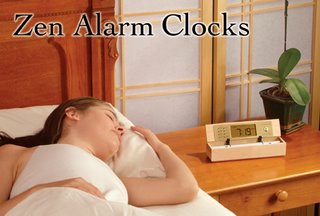 Sleep Getting enough shut-eye doesn’t just boost your energy — it may increase brainpower as well. Research shows that a good night’s sleep helps improve memory. In one recent study published in Nature Neuroscience, researchers found that sufficient sleep is also necessary to help retain episodic memory — your ability to remember times, places, and events. Although sleep needs vary, most of us require about eight hours a night.
Waking up in the morning should be as pleasant as falling asleep at night. The Zen Alarm Clock’s gradual, gentle awakening is transformative.
The Digital Zen Clock’s long-resonating Tibetan bell-like chime makes waking up a beautiful experience – its progressive chimes begin your day with grace.
adapted from Body + Soul Magazine, 2010
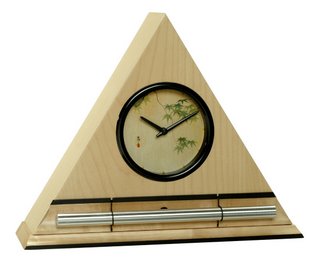 Japanese Maple Leaves Dial Face, the Zen Alarm Clock and Timer
Now & Zen – The Zen Alarm Clock Shop
1638 Pearl Street
Boulder, CO 80302
(800) 779-6383
Posted in Chime Alarm Clocks, sleep, Sleep Habits
 A Stillness Practice for before Bedtime Tailgaters. Telemarketers. Teenagers. When you can sum up your day that way, it’s easy to respond with a few choice words of your own. Yet losing your cool rarely feels good or reflects your best character. To maintain your center and stay true to yourself, try this technique from David Simon, M.D., medical director and co-founder of the Chopra Center for Well-Being in Carlsbad, Calif.
Every night before bed, take a few minutes to mentally replay your day. This simple process gives you a different perspective on your actions, along with the opportunity to right any wrongs.
* Set your Zen Timer with Chime for 5 to 10 minutes. Sit up in bed with a pillow propped behind you; bend your knees or cross your legs comfortably on the bed.
* Close your eyes and take a few slow, deep breaths. Observing the in-and-out flow of your breath, allow your body to relax and your mind to quiet.
* Let the day’s events unfold. Picture each one from the time you awoke to the present.
* Notice if your body reacts negatively during any part of the process. A churning in your gut or a nervous response may signal something unresolved.
* Reflect on this particular event and ask yourself if you acted correctly. If anything feels unsettled, note it in a journal with the intention of addressing it the next day.
Revisiting unresolved issues offers you a second chance to do the right thing, Simon says. Maybe a disparaging remark was said about someone you like and respect, but you didn’t speak up at the time. Now you can tell the person who made the remark why such talk makes you uncomfortable.
Over time, annoyances like traffic jams will seem less significant and stressful. “You’ll be able to stay centered and balanced as you encounter the ups and downs of life,” Simon observes. Even better, this nightly evaluation will make you more aware of your goals and how they relate to day-to-day activities. “It will help you honor the person you want to be in the world,” he says.
adapted from Natural Health Magazine by Sarah D. Smith
The Zen Timer & Alarm Clock with Chime serves as a countdown and interval timer for yoga, meditation, bodywork, etc.; and it can also be set to chime on the hour as a tool for “mindfulness.”
 Natural Wood Chime Zen Timers and Alarm Clocks Now & Zen’s Chime Alarm Clock Shop
1638 Pearl Street
Boulder, CO 80302
(800) 779-6386
Posted in intention, Meditation Timers, Meditation Tools, mindfulness practice, sleep, Well-being, Zen Timers
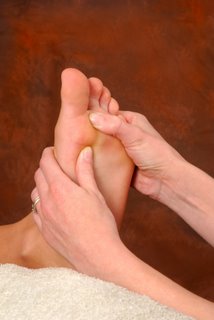 foot massage The senses can offer a shortcut to rest.
Massage comes to mind. So does aromatherapy; lavender essence in particular, small studies have shown, has a relaxing effect, even reducing stress hormone levels. Visual cues can raise or ease tension, depending on what you’re looking at. It’s a principle of design, for example, that horizontal lines are restful while vertical ones stir up power and tension (think a bed versus prison bars), and cool colors (blue, green) are said to induce more serenity than hot ones (red or orange). Views of nature have helped hospital patients heal faster. Gazing at an aquarium has been shown to slow the pulse.
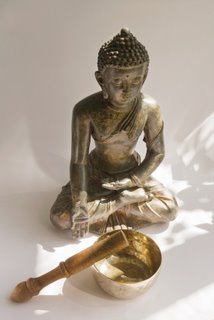 Carved Wooden Thai Buddha with Singing Bowl Sound, too, can be a potent relaxant, and tempo is a key player. Using various genres from classical to techno and rap, researchers found that, regardless of what music the subjects liked to listen to, an adagio (such as that from Beethoven’s Ninth Symphony) and an Indian raga physically decelerated the body into a calm state, compared with faster pieces like a Vivaldi presto (L’Estate) or a song by the Red Hot Chili Peppers. One reason for this may be respiratory entrainment, the tendency of the listener’s breath to rise and fall with the music’s beat. But another theory explains that putting on music—of any kind—can recharge you: When the tempo is brisk, it arouses our engagement; then when it slows or pauses, there’s a release of attention that leads to relaxation.
Lhasha Tizer, a wellness coach who teaches sound meditation at the Miraval Resort in Catalina, Arizona, believes that listening to nature’s sounds, a kind of music in itself, may have been the way our earliest ancestors meditated away stress. “Those rhythms create a trancelike state,” she says. (In fact, researchers at the University of Louisville School of Medicine found that a CD of natural sounds—birdsong, ocean surf—markedly shortened the amount of time it took people to physiologically recover from a stressful stimulus when compared with white noise.) “Today, with the way we work and the cacophonic noise we’re exposed to, we don’t have such an automatic gateway to help us focus and settle down,” Tizer points out.
To re-create that trancelike feeling through music, she suggests building up a sound repertoire. Start by being receptive to the sounds around you. Notice how noises affect you—children playing, horns honking, wind blowing through the trees. Gradually begin seeking out simple music with a clear percussive element. Pay attention to the beats you like, identifying the moods they evoke, and use those to guide you in choosing increasingly advanced melodies that carry away your anxiety.
In time, you’ll not only have a database of meditative music but, within it, be able to match your playlist to the mood you want to be in. Ultimately, a good rhythmic rest—and for that matter, any brief escape from a world where you always have to do to a place where you can just be—should make you feel like getting up and dancing.
Our Zen Timepiece’s acoustic 6-inch brass bowl-gong clock is the world’s ultimate alarm clock, practice timer, and “mindfulness bell.” It has the most beautiful natural Singing Bowl Sounds. It is not only an Alarm Clock by a Countdown timer for meditation and yoga.
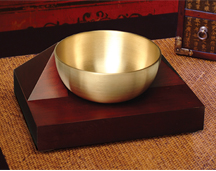 The Natural Sounds Singing Bowl Alarm Clock from Now & Zen, Inc.
It fills your environment with beautifully complex tones whenever it strikes. In the morning, its exquisite sounds summon your consciousness into awakening with a series of subtle gongs that provide an elegant beginning to your day. Once you experience the Zen Timepiece’s progressive awakening, you’ll never want to wake up any other way. It also serves as the perfect meditation timer. Available in 5 wood styles, including bamboo.
By Sara Reistad-Long
O, The Oprah Magazine
Now & Zen’s Natural Sounds Alarm Clock Shop
1638 Pearl Street
Boulder, CO 80302
(800) 779-6383
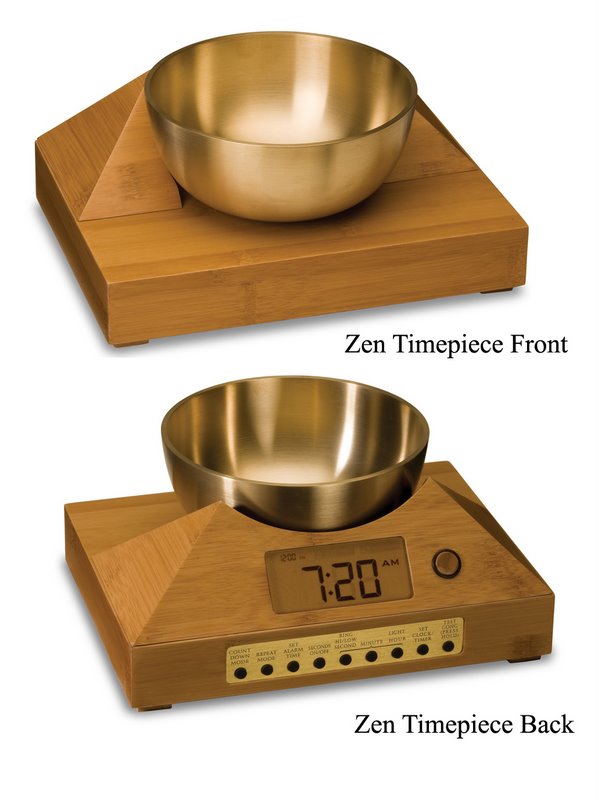 Sound Therapy Alarm Clock with Tibetan Singing Bowl
Posted in Natural Awakening, sleep, Sleep Habits
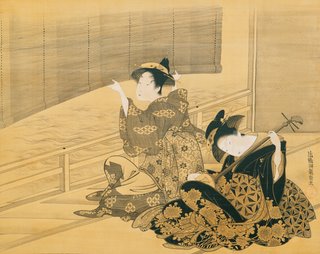 Isoda Koryusai, Japanese (active c. 1764–1788) Change Your Alarm Clock…
The Digital Zen Clock’s long-resonating Tibetan bell-like chime makes waking up a beautiful experience – its progressive chimes begin your day with grace. When the clock’s alarm is triggered, the acoustic chime bar is struck just once … 3-1/2 minutes later it strikes again … chime strikes become more frequent over 10 minutes … eventually striking every 5 seconds until shut off. As they become more frequent, the gentle chimes will always wake you up – your body really doesn’t need to be awakened harshly, with a Zen Clock you’re awakened more gradually and thus more naturally. Unlike artificial recorded sounds coming out of a tiny speaker in a plastic box, natural acoustic sounds transform your bedroom or office environment.
The Digital Zen Clock also serves as a countdown and interval timer for yoga, meditation, bodywork, etc.; and it can also be set to chime on the hour as a tool for “mindfulness.”
Digital Zen Clocks feature a “high” and “low” chime strike volume control, which allows you to adjust the sound of the chime to suit your needs. The Digital Zen Clock runs on 2 AA batteries (not included) and can also be plugged in with the included AC jack. The clock includes a lighted digital display (which can be set to be lit full-time when plugged in).
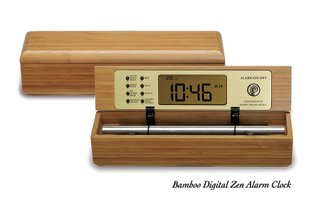 change your alarm clock so you eliminate the shock in your life Now & Zen’s Clock Store
1638 Pearl Street
Boulder, CO 80302
(800) 779-6383
Posted in Bamboo Chime Clocks, Natural Awakening, Now & Zen Alarm Clocks, sleep, Sleep Habits
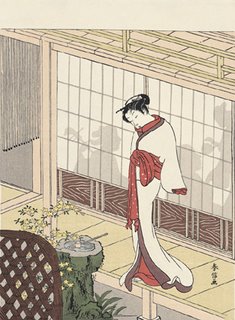 harunobu suzuki, Beauty at the Veranda
For most women who chronically bump along on near empty, it’s no mystery that getting to bed a little earlier would help. “The sleep system really does work like a bank,” says William Dement, MD, PhD, who—as chief of the sleep medicine division at the Stanford University School of Medicine—should know. “We can keep going for a long time on borrowed energy because our survival mechanisms kick in. At some point, however, every hour lost needs to be paid back.” But instead of the pillow, we’ll often reach for coffee—37 percent of American women chug more than three caffeinated beverages a day, according to the National Sleep Foundation—or a glass of wine, or something sweet, or the remote control to “wind down” with Anderson Cooper, who’s inevitably reporting from a war zone with things blowing up in the background. None of these efforts restores energy—some, in fact, do the opposite. Even when you do finally climb into bed, there are times when anxiety invades your sleep, leaving you bleary-eyed and dragging day after day. So we decided to investigate what—short of permanent residency at a spa—gives you a real rest.
Paradoxically, according to the newest research, when you’re looking for a profound rest cure, rather than trying to tune out, you may be better off tuning in and anchoring your awareness in the present moment. You can approach such engagement through various routes, like fully using your senses, practicing mindfulness, getting into a flow state, and—most difficult for many, but perhaps most effective—giving up the need to be in control.
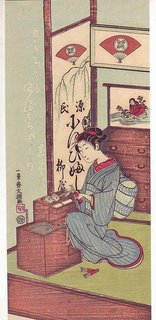 tune in Loch Kelly, A New York Buddhist-trained psychotherapist and meditation teacher, uses a technique called “resting in the heart space” to help people relinquish the reins; in his experience it provides the deepest rest in the shortest amount of time. “Traditionally, meditation focuses on getting to a state so neutral that there isn’t a problem to solve. Some monks spend 20 years in isolation working on just that.” But anyone, Kelly claims, can attain a sense of flow—and many of us already do through ordinary activities like gardening, knitting, working, or driving. When you’re in a car, for example, you have to focus on the road as it looks in the moment and, at the same time, stay alert to continually anticipate the next move. Eventually, your brain resolves the two directions it’s working in by falling into a rhythm, which leads to an open state of awareness that Kelly calls flow. You’re most likely to feel it after an unfettered drive in the country—no urgent sense of time passing or future demands impinging, but rather a merging into the current, a harmony with the environment as the present unfolds. “There’s something that’s unhooked from the mind, prior to thought, and at the same time intelligent,” Kelly says. “You can respond quickly.” Entering this flow state signals the brain that you’re safe, not in danger mode.
Once you’ve gotten a sense of what flow is, you’re ready for the heart space meditation. Kelly suggests deciding ahead of time how long you can allow yourself to rest—people usually do it from one to 20 minutes, but you may want to go longer. To prepare, take a big inhalation, filling your stomach from the bottom to the top like a water pitcher. Exhale as you normally would. Next, look up and gradually allow your peripheral vision to expand, a gesture intended to keep you engaged with your surroundings. Smile to tell yourself that you’re doing something you enjoy.
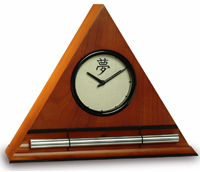 get the rest you need
Boulder, Colorado—an innovative company has taken one of life’s most unpleasant experiences (being startled awake by your alarm clock early Monday morning), and transformed it into something to actually look forward to. “The Zen Alarm Clock,” uses soothing acoustic chimes that awaken users gently and gradually, making waking up a real pleasure. Rather than an artificial recorded sound played through a speaker, the Zen Clock features an alloy chime bar similar to a wind chime. When the clock’s alarm is triggered, its chime produces a long-resonating, beautiful acoustic tone reminiscent of a temple gong. Then, as the ring tone gradually fades away, the clock remains silent until it automatically strikes again three minutes later. The frequency of the chime strikes gradually increase over ten-minutes, eventually striking every five seconds, so they are guaranteed to wake up even the heaviest sleeper. This gentle, ten-minute “progressive awakening” leaves users feeling less groggy, and even helps with dream recall.
By Sara Reistad-Long
O, The Oprah Magazine
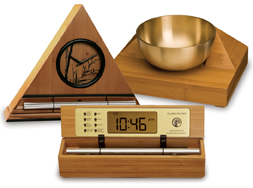 Now & Zen's Family of Alarm Clocks
Now & Zen’s Chime Alarm Clock Shop
1638 Pearl Street
Boulder, CO 80302
(800) 779-6383
Posted in Bamboo Chime Clocks, Chime Alarm Clocks, Natural Awakening, sleep, Sleep Habits
 Yawning May Cool the Brain Study also found sinuses act like a bellows, help keep brain the right temperature
Yawning helps keep the brain cool, and the sinuses play a role in that process by acting as bellows, a new report suggests.
Yawning isn’t triggered because you’re bored, tired or need oxygen. Rather, yawning helps regulate the brain’s temperature, according to Gary Hack, of the University of Maryland School of Dentistry, and Andrew Gallup, of Princeton University.
“The brain is exquisitely sensitive to temperature changes and therefore must be protected from overheating,” they said in a University of Maryland news release. “Brains, like computers, operate best when they are cool.”
During yawning, the walls of the maxillary sinuses (located in the cheeks on each side of the nose) flex like bellows and help with brain cooling, according to the researchers.
They noted that the actual function of sinuses is still the subject of debate, and this theory may help clarify their purpose.
“Very little is understood about them, and little is agreed upon even by those who investigate them. Some scientists believe that they have no function at all,” Hack said in the news release.
The researchers said their theory that yawning helps cool the brain has medical implications. For example, excessive yawning often precedes seizures in people with epilepsy and pain in people with migraine headaches.
Doctors may be able to use excessive yawning as a way to identify patients with conditions that affect temperature regulation.
 Yawning May Cool the Brain “Excessive yawning appears to be symptomatic of conditions that increase brain and/or core temperature, such as central nervous system damage and sleep deprivation,” Gallup said in the news release.
The paper appears in the December issue of the journal Medical Hypotheses.
More information
The American Rhinologic Society has more about sinuses.
— Robert Preidt
SOURCE: University of Maryland at Baltimore, news release, Nov. 14, 2011
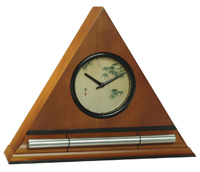 The Zen Alarm Clock transforms mornings, awakening you gradually with a series of gentle acoustic chimes Once you use a Zen Clock nothing else will do Now & Zen – The Chime Alarm Clock Shop
1638 Pearl Street
Boulder, CO 80302
(800) 779-6383
Posted in sleep
 trouble sleeping? By John D. Sutter, CNN
There’s growing concern that the glowing screens of laptops and the iPad may affect sleep if used right before bedtime.
J.D. Moyer decided recently to conduct a little experiment with artificial light and his sleep cycle.
The sleep-deprived Oakland, California, resident had read that strong light — whether it’s beaming down from the sun or up from the screens of personal electronics — can reset a person’s internal sleep clock.
So, for one month, whenever the sun set, he turned off all the gadgets and lights in his house — from the bulb hidden in his refrigerator to his laptop computer.
It worked. Instead of falling asleep at midnight, Moyer’s head was hitting the pillow as early as 9 p.m. He felt so well-rested during the test, he said, that friends remarked on his unexpected morning perkiness.
“I had the experience, a number of times, just feeling kind of unreasonably happy for no reason. And it was the sleep,” he said. “Sure, you can get by with six or seven hours, but sleeping eight or nine hours — it’s a different state of mind.”
Moyer may be onto something.
More than ever, consumer electronics — particularly laptops, smartphones and Apple’s new iPad — are shining bright light into our eyes until just moments before we doze off.
Now there’s growing concern that these glowing gadgets may actually fool our brains into thinking it’s daytime. Exposure can disturb sleep patterns and exacerbate insomnia, some sleep researchers said in interviews.
“Potentially, yes, if you’re using [the iPad or a laptop] close to bedtime … that light can be sufficiently stimulating to the brain to make it more awake and delay your ability to sleep,” said Phyllis Zee, a neuroscience professor at Northwestern University and director of the school’s Center for Sleep & Circadian Biology.
“And I think more importantly, it could also be sufficient to affect your circadian rhythm. This is the clock in your brain that determines when you sleep and when you wake up.”
Such concerns are not entirely new: One sleep researcher said Thomas Edison created these problems when he invented the light bulb.
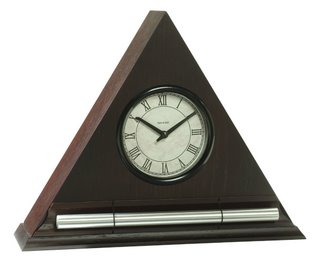 Zen Alarm Clocks Choosing an alternative to your i Pad alarm clock just may help to sleep better.
“The Zen Alarm Clock,” uses soothing acoustic chimes that awaken users gently and gradually, making waking up a real pleasure. Rather than an artificial recorded sound played through a speaker, the Zen Clock features an alloy chime bar similar to a wind chime. When the clock’s alarm is triggered, its chime produces a long-resonating, beautiful acoustic tone reminiscent of a temple gong. Then, as the ring tone gradually fades away, the clock remains silent until it automatically strikes again three minutes later. The frequency of the chime strikes gradually increase over ten-minutes, eventually striking every five seconds, so they are guaranteed to wake up even the heaviest sleeper. This gentle, ten-minute “progressive awakening” leaves users feeling less groggy, and even helps with dream recall.
In the morning, its exquisite sounds summon your consciousness into awakening with a series of subtle gongs that provide an elegant beginning to your day. Once you experience the Zen Timepiece’s progressive awakening, you’ll never want to wake up any other way.
 Zen Alarm Clock Shop - Boulder, Colorado Now & Zen’s Clock Store
1638 Pearl Street
Boulder, CO 80302
(800) 779-6383
Posted in Natural Awakening, Now & Zen Alarm Clocks, sleep, Sleep Habits
« Previous Page — « Previous Entries
Next Entries » — Next Page »
|
|
|
|